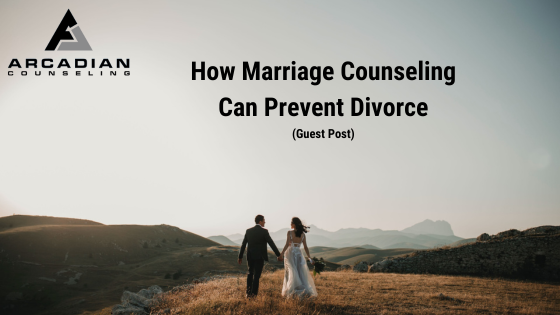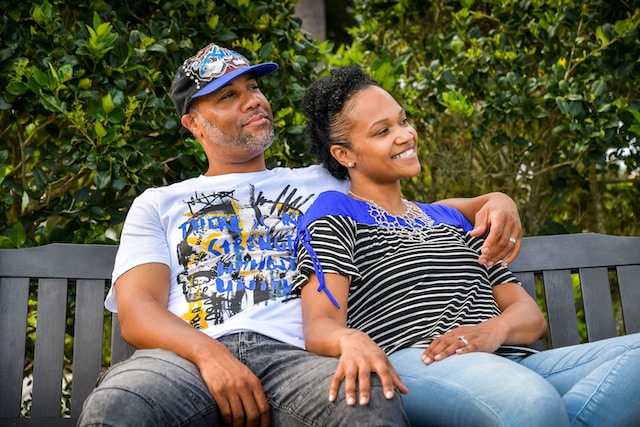Even the happiest marriages can face problems as time goes on. However, there is hope for troubled relationships—marriage counseling. This tool has proved itself as a helpful way to prevent divorce and fix marriage issues.
In this article, we’ll discuss how marriage counseling works and help couples deal with challenges and disputes over different situations. In addition, you’ll discover when to use it and when it won’t prevent a breakup.
Keep reading to learn how marriage counseling can help restore your marriage and save it from divorce.
What is Marriage Counseling?
Marriage counseling is a form of therapy where spouses seek professional help with their relationship issues. Unlike other individual therapy types, it involves both partners participating in sessions.
The main idea is for both spouses to go to counseling together to talk about their problems and the difficulties they are experiencing. Then, with the help of a trained counselor or therapist, they can learn how to solve their disputes and improve their relationship, saving it from a divorce.
Of course, it’s unrealistic to promise marriage counseling can prevent divorce in all cases. In reality, it helps about 75% of couples, which is still an excellent result. However, counseling sessions can’t fix a troubled marriage overnight. If both partners are willing to improve the relationship, they should attend more than a few counseling sessions that can help prevent divorce over time.
What Are the Types of Marriage Counseling?
There are various types of marriage counseling approaches based on the couple’s specific needs. These different modalities offer unique approaches to couples counseling, addressing multiple concerns and providing tools for improvement. The principal methods include the following:
- Emotionally Focused Therapy (EFT)
- The Gottman Method
- Cognitive Behavioral Therapy (CBT)
- Internal Family Systems (IFS)
- Solution-Focused Therapy (SFT)
- Positive Psychology Therapy
Each approach has its benefits and should be employed in different situations. For instance, the Gottman method is suitable for dealing with criticism and alienation and is focused on reducing behaviors that lead to divorce. On the other hand, cognitive-behavioral therapy helps identify and change negative thoughts about the other partner and the marriage as a whole.
Only a marriage counselor can choose the right approach. In some cases they might select one or several methods, depending on their specialization and dynamics in the couple’s marriage.
When to Consider Marriage Counseling?
Marriage counseling can become a helpful tool in many cases. Here are some situations and reasons why you and your spouse should find a counselor:
- You have communication issues, such as frequent misunderstandings and arguments.
- You feel indifferent to each other’s problems and can’t relate to the other partner’s pain.
- You keep stumbling over the same disputes and need help finding a solution.
- You experience anger, annoyance, or resentment towards your spouse or their actions.
- There are trust issues in your marriage.
- You can’t agree on parenting styles and have frequent conflicts over child-related matters.
- Your emotional connection is broken, and you lack physical intimacy.
- You want to discuss different topics but can’t find the right words and time.
- You’re going through difficult times and need help finding your way back to each other.
At the same time, marriage counseling won’t likely work if:
- One spouse doesn’t wish to go to counseling and repair the marriage.
- There is abuse and domestic violence.
- If one spouse has a severe mental condition interfering with their sound judgment.
- If spouses have a complete incompatibility of life and relationship goals.
How to Prepare for Marriage Counseling?
Marriage counseling aims to help couples pinpoint and resolve conflicts, leading to an improved, healthy relationship. Despite that, many spouses attend therapy with the sole purpose of proving the other party’s guilt. If you start counseling with such a mindset, you won’t get any tangible results soon.
Therefore, it is essential to begin preparing for the sessions by opening yourself to different points of view. Don’t reject someone else’s opinion right away. Instead, let the thought settle in and see if your perception of the situation changes.
Open-mindedness is essential for healthy relationships, says John Gottman. It allows for growth, empathy, and exploring new possibilities together. Thus, opening up to your spouse’s perspective will help you resolve disagreements more quickly and effectively.
Another way to get ready for marriage counseling is to analyze your concerns and issues that you’ve noticed in your relationship. This way, you can address all critical pain points during the counseling sessions and communicate your needs more effectively.
How Does Marriage Counseling Work?
If you’ve never resorted to marriage counseling, it’s good to know what it looks like. But first, you must find a professional therapist with experience in couples therapy.
Typically, the counselor will start by evaluating you and your spouse together or meet with you separately. Then, your therapist might suggest a mix of individual and joint meetings to address specific concerns better.
Some stages you can expect to experience during the marriage counseling process include:
1. Finding a counselor:
Finding someone qualified and experienced in dealing with marital issues is crucial. You should seek therapists with relevant specialized training, like the Gottman approach, positive psychology therapy, or emotionally focused therapy (EFT). Many therapists offer a free brief consultation, where you can get a glimpse of their methods and decide whether you like them.
2. Identifying underlying problems:
A good relationship counselor can help spouses identify the causes of marital problems and help them find practical and timely solutions. In particular, the counselor may listen closely to how spouses communicate and evaluate the quality of interaction, including non-verbal signals. Then, they discuss any issues they uncover with the couple. Common ones include communication problems, physical intimacy concerns, trust issues, etc.
3. Setting aims for counseling:
After identifying the main marriage problems, the counselor helps the couple set clear goals for the counseling sessions. These goals include improving how they listen and talk to each other, solving conflicts, rebuilding trust, or removing the source of their relationship issues altogether.
4. Implementing therapeutic methods:
Couples will practice various skills during sessions, such as active listening exercises, conflict resolution methods, empathy, and truthfulness. Spouses will also work on strengthening emotional bonds and practicing compassion for each other.
Can Marriage Counseling Help Prevent Divorce?
When a married couple goes through difficulties, frequently arguing and turning a deaf ear to each other’s perspective, their communication ability is compromised. Hence, they won’t find a solution without help from outside.
A marriage counselor can assist such spouses in improving their communication skills to reconnect with each other. But the effectiveness of the counseling depends on the equal participation of both partners.
“Marriage counseling is hard work,” says Terry Gaspard, MSW from the Gottman Institute. But she also believes it is wise to invest the time to determine if a marriage can be improved and saved. Most importantly, the success of marriage counseling depends on the spouses’ motivation levels and the time they start seeking help.
Final Thoughts
Marriage counseling is not guaranteed to prevent divorce in 100% of marriages, but it helps couples decide what’s best for their future. Several sessions with a relationship expert or a therapist can give you a solid chance to rebuild your marriage. If both spouses are ready to put in the effort, they can find a renewed sense of resilience, helping them strengthen their marriage.
At the same time, if the couple decides to separate, marriage counseling can help maintain a friendly and civilized relationship afterward. It is especially beneficial for parents who plan to communicate without anger or resentment for their child’s sake.
Natalie Maximets is a certified life coach and a contributing writer at OnlineDivorce.com. She helps people survive fundamental life changes and improve interpersonal relationships.




